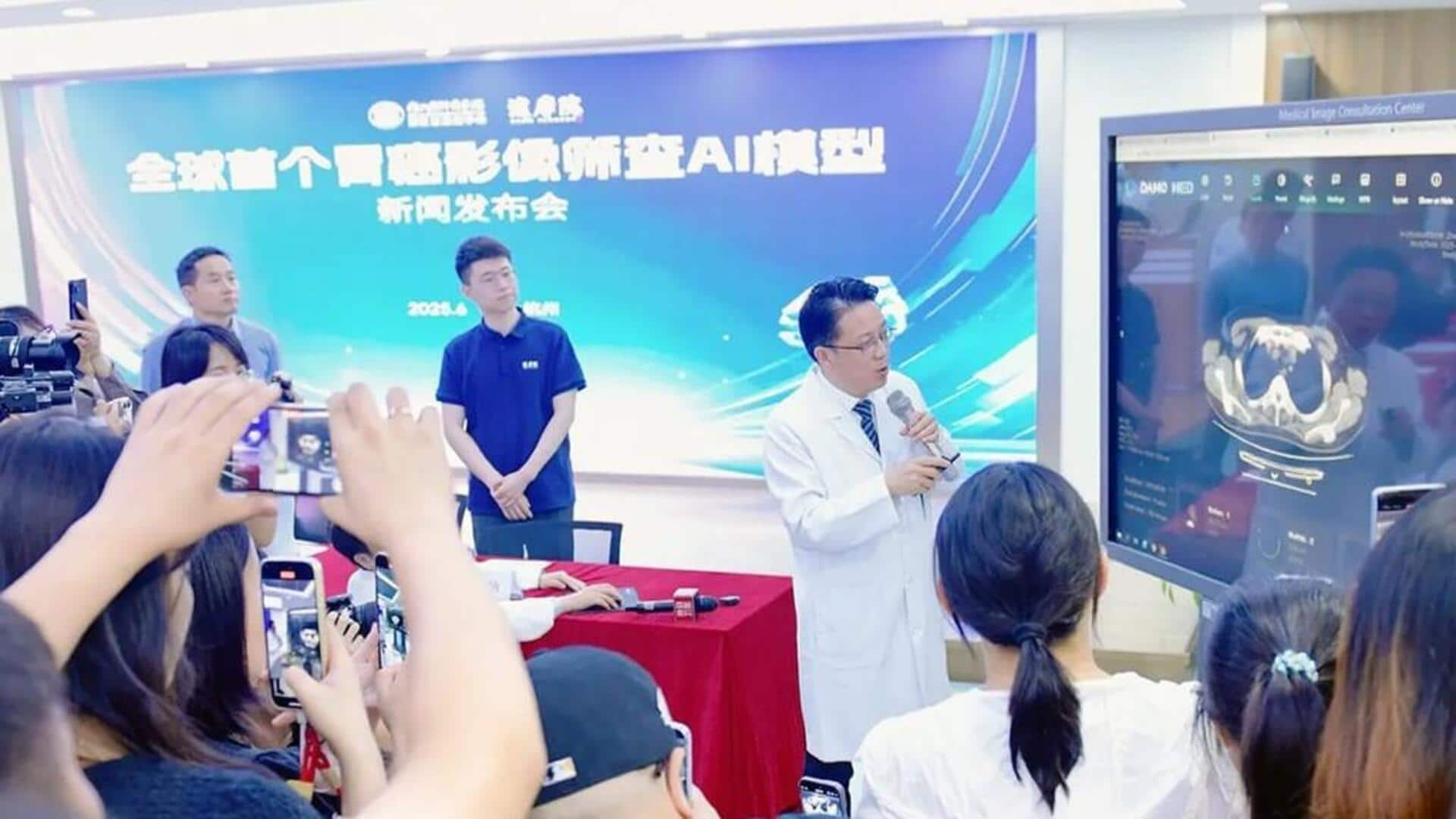
Alibaba's new AI can detect stomach cancer at early stages
What's the story
Alibaba Group has introduced a revolutionary artificial intelligence (AI) model, named Grape, which can detect gastric cancer from computed tomography (CT) images. The deep-learning framework was co-developed by Alibaba's Damo Academy and Zhejiang Cancer Hospital, both in Hangzhou, China. It is the first of its kind to diagnose stomach cancer even at early stages by scanning 3D CT scans.
Performance comparison
Grape outperforms radiologists
The Grape model has shown an impressive performance in detecting gastric cancer. It achieved a sensitivity of 85.1% and specificity of 96.8%, according to a study published in the journal Nature Medicine. These numbers are much better than those achieved by radiologists working without the model, by 21.8% and 14%, respectively, especially when it comes to early-stage stomach cancer detection.
Impact potential
The model could revolutionize gastric cancer screening
Cheng Xiangdong, a gastric surgeon at Zhejiang Cancer Hospital, believes that the Grape model could transform the approach to gastric cancer screening in China and globally. He said that the percentage of early-stage detections could "increase significantly." This is especially important given that gastric cancer is the fourth leading cause of cancer-related deaths worldwide and can remain symptom-free even at advanced stages.
Early detection
Case study highlights the model's potential
The Grape model could have improved the early detection of gastric cancer in a real-world case where a late-stage patient was missed by radiologists. According to Damo, the individual could have been diagnosed six months earlier through CT scans. This highlights the potential of AI technology like Grape in improving early detection rates and saving lives.